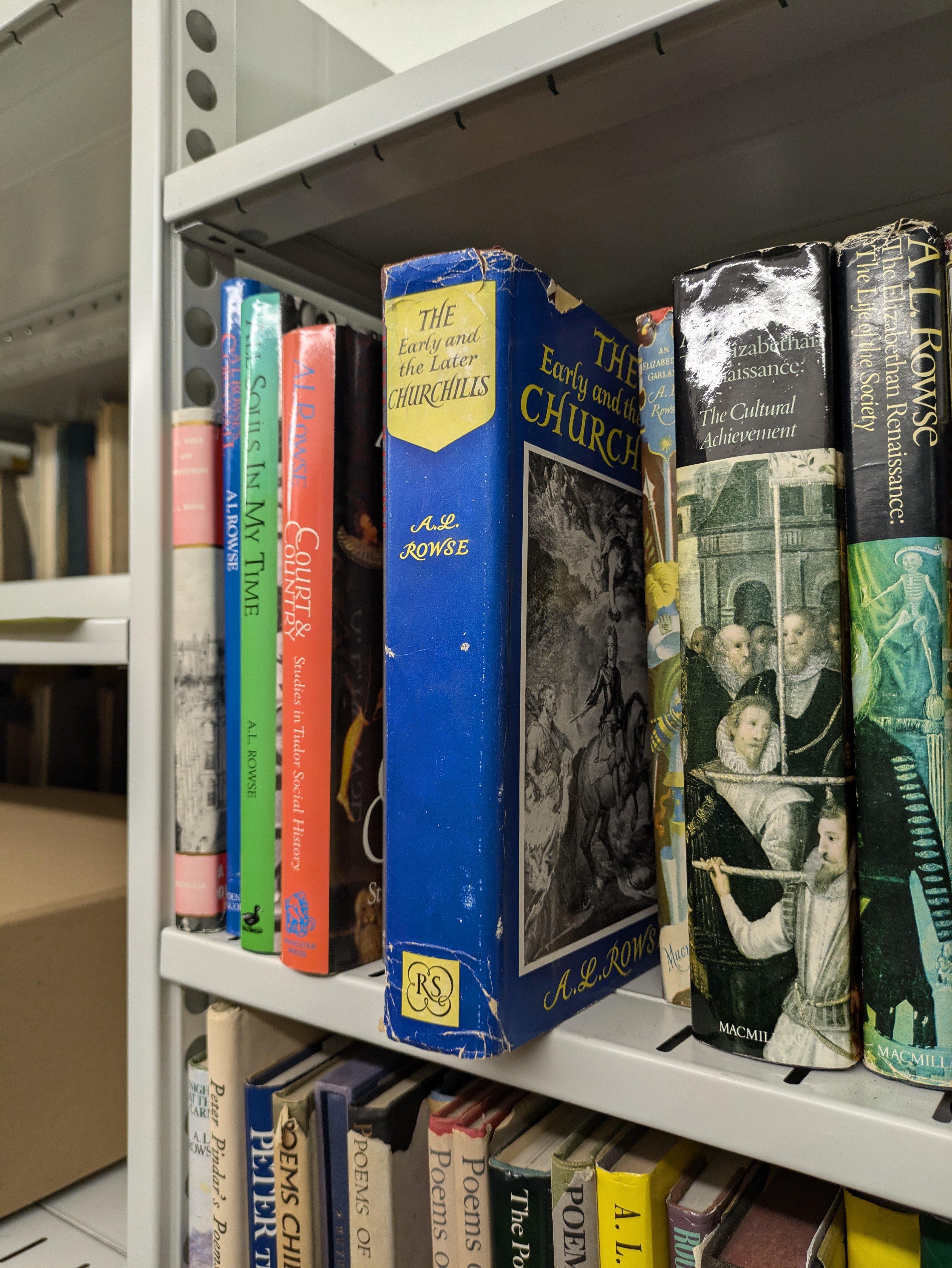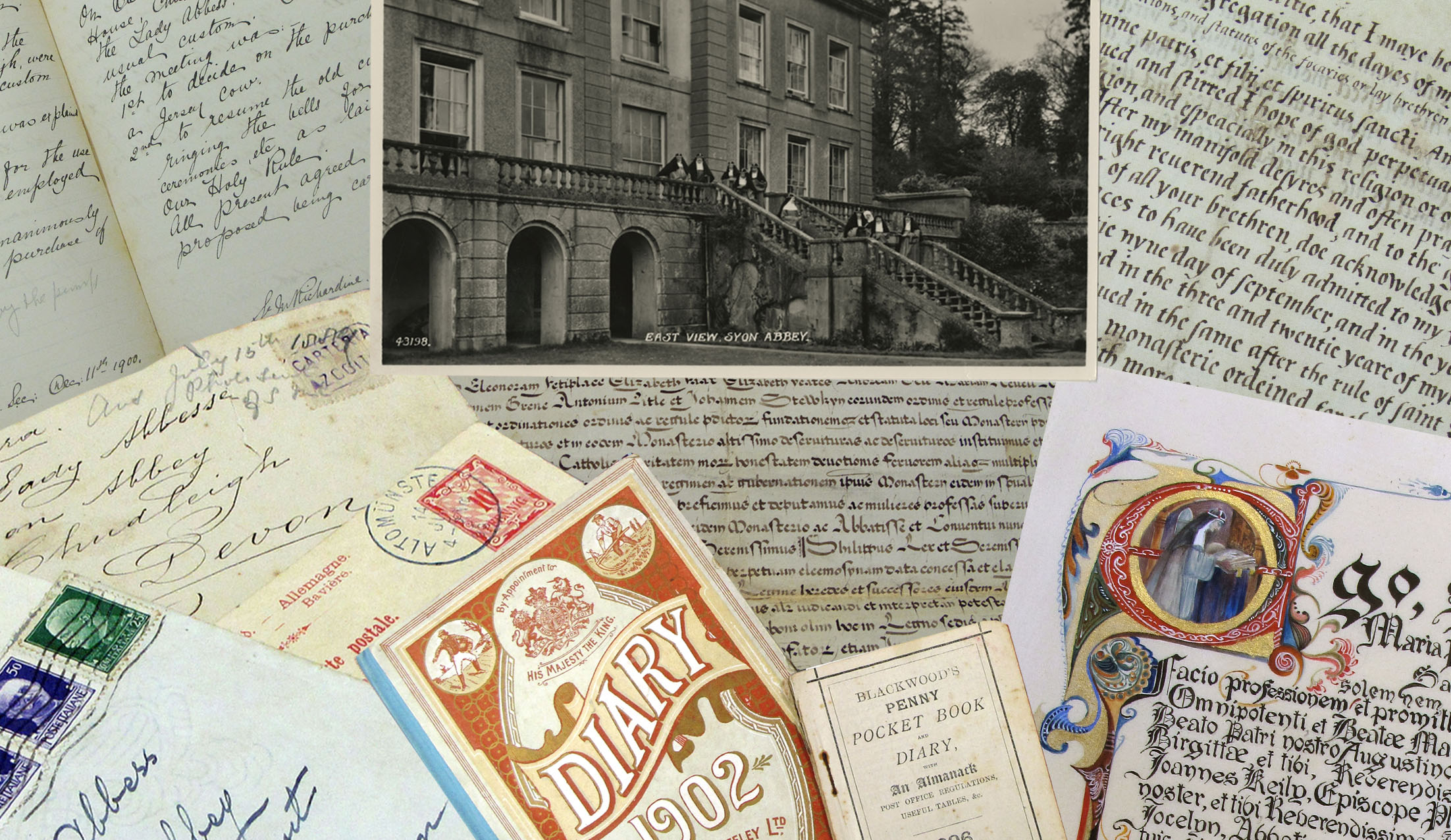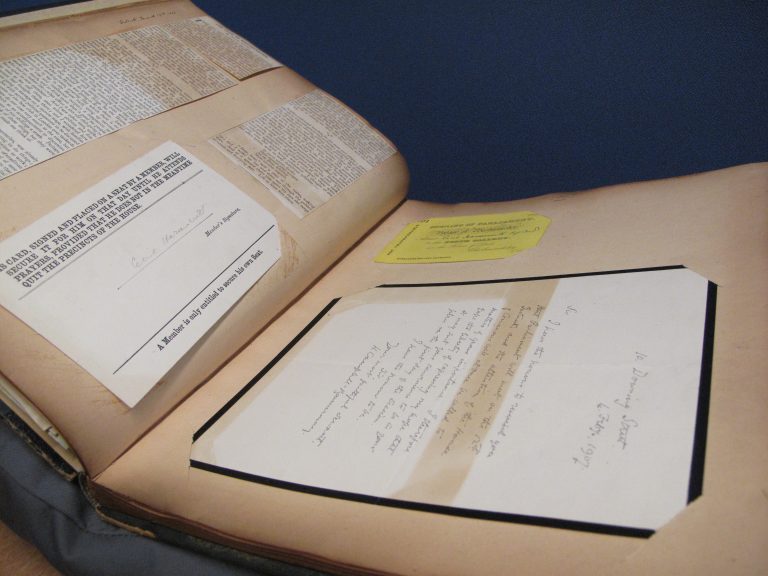With less than a week to go before the general election, cataloguing archivist Hollie Piff decided to search through our collections for material with an electoral theme.
The University’s Special Collections are vast and cover a broad range of topics, so it’s unsurprising that general elections popped up more than once when searching the catalogue.
A.L. Rowse
The first collection that caught my eye, and inspired a new exhibition in the Forum Library, were the Papers of A.L. Rowse (EUL MS 113). A.L. Rowse was an historian, poet, diarist, biographer, and critic, born in Tregonissey near St. Austell, Cornwall. He won a scholarship to Christ Church, Oxford, gaining a first-class honours degree in history in 1925 when he was also elected Fellow of All Souls, Oxford. It was during this period that he established many of the social contacts with academic, political, and literary circles that he maintained for the rest of his life. Rowse was a prolific letter writer, so his collection contains hundreds of letters from politicians, artists, writers, and other notable people, including correspondence from Prime Ministers.
Correspondence from Winston Churchill reveals a friendship between the two men, and many of Churchill’s letters praise Rowse’s writing. Rowse wrote two books about Churchill and his family, and supported Churchill in the publication of his own book, A History of the English-Speaking Peoples, in 1956. Rowse was invited to celebrate the publication of A History of the English-Speaking Peoples, and the seating plan shows him placed at the head table with Churchill. The guests were served salmon and roast beef, followed by a crinoline lady cake for dessert. Other notable guests included Sir Allen Lane, co-founder of Penguin Books, and Eartha Kitt, singer of ‘Santa Baby’.

Unfortunately, not all the letters were quite so celebratory. A letter from Denis Thatcher, Margaret Thatcher’s husband, to Rowse on the 19th of November 1990 reveals a weariness at 10 Downing Street. “Over 30 years of vicarious politics,” Thatcher writes, “I have learnt that it is harsh and often thankless” (EUL MS 113/3/1/T). This letter came five days after a Conservative Party leadership election was called by Michael Heseltine, which perhaps explains Denis Thatcher’s suggestion that “the combination of the ambitious and the disaffected changes the course of history, more often than not for the worse” (EUL MS 113/3/1/T). The very next day Margaret Thatcher would fail to win the first ballot outright, and would announce her resignation on the 22nd of November 1990.
Syon Abbey
Rather unexpectedly, general elections also feature in the Syon Abbey collection (EUL MS 389). Syon Abbey was a monastery of the Bridgettine Order, founded at Twickenham in 1415. After the Dissolution of the Monasteries in the 16th century, the community split into groups to continue their religious practice; some groups stayed in England while others travelled abroad. In 1861 the community returned to England, settling in Devon from 1925 until 2011 when the monastery was closed.
In 1951, the nuns applied to the Bishop of Plymouth to be allowed to leave the abbey to vote in the general election. The bishop’s office wrote to the abbess to say that as the “election [was] of a very serious nature,” they should “write to the Apostolic Delegate” for special permission (EUL MS 389/ECC/1/9). Permission was eventually granted by William Godfrey, papal representative to England and later Archbishop of Westminster, and the nuns were allowed to vote.
The 1951 general election was “of a very serious nature” because it was called 20 months after the 1950 general election. The result was tight and, while the Labour Party won the most votes, the first-past-the-post system meant that the Conservative Party, with Winston Churchill as leader, took power in Westminster with a majority of only 17 seats.

Cecil Harmsworth
The Cecil Harmsworth (1869-1948) papers (EUL MS 435) provide an insight into the day-to-day life of an MP in the early 20th century. Harmsworth was a Liberal politician, born in London and educated at Trinity College Dublin. His political career began in 1899 when he ran unsuccessfully as the Liberal candidate for Mid Worcestershire, and later as the Liberal candidate for North East Lanarkshire in 1901. Harmsworth’s luck changed in 1906 when he became the Liberal MP for Droitwich, and his defeat in the 1910 general election eventually led to his extended tenure as MP for Luton from 1911-1922. Harmsworth also served as Parliamentary Under-Secretary for the Home Department under Lloyd George, and as Parliamentary Under-Secretary for Foreign Affairs, and was appointed to the House of Lords in 1939.
The collection is particularly rich in autobiographical writing, with personal and travel diaries from 1900-1948. The diaries contain personal and professional observations and notes, including references to domestic and foreign policy, and inserted press cuttings, letters, and cards. Both World Wars are represented, including an entry on Monday 23rd April 1945 declaring the end of the black out “after five long years” (EUL MS 435/1/1).
Harmsworth also created a scrapbook to document his time in the House of Commons. The scrapbook is fragile and incomplete, but it contains copies of letters from H.H. Asquith, dinner menus, press cuttings, and addresses to Parliament.

To learn more about the political archives held here in Special Collections, check out or LibGuides subject guide, read our blog about the Cecil Harmsworth collection, or search our catalogue.
Don’t forget to vote next Thursday (4th July), and make sure to bring a form of voter ID!